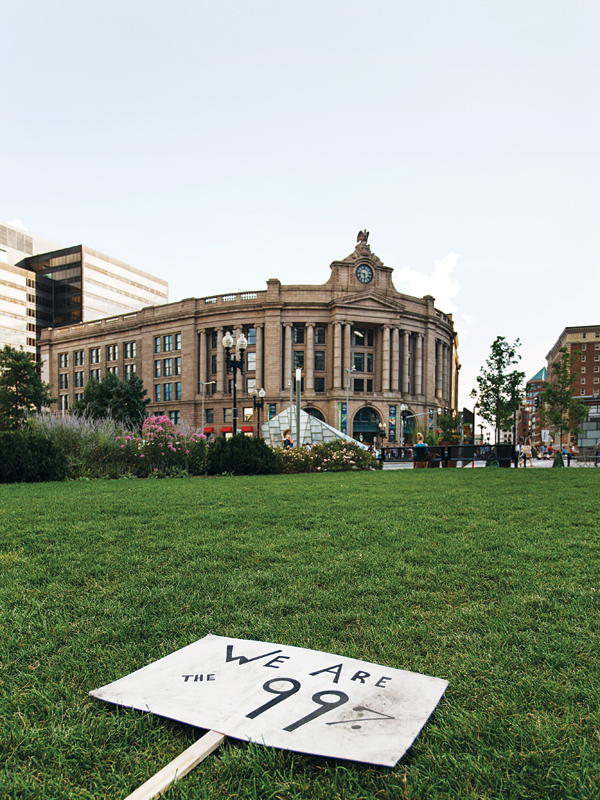They Came, They Left: Will Occupy Boston Return?
 Photo by Bob O’Connor
Photo by Bob O’Connor
When the people of Occupy Boston set up their tents in front of the Federal Reserve on September 30, 2011, they helped bring two related ideas into the mainstream of political discourse: wealth distribution and the notion of the one percent—and, by extension, the 99 percent.
The occupiers endured for five fortnights to become the country’s longest-standing encampment, and when they were about to be finally ejected from Dewey Square, they used a projector to display “You can’t evict an idea” onto the wall behind them.
Perhaps, but the Occupy movement itself has gone fairly mute. With big money once again driving the agenda in the lead-up to the November elections, those scrappy encampments seem like a distant memory.
Even so, Robin Jacks—one of the movement’s most vocal members—believes they made a lasting impact. “Mitt Romney has run for president before, and used to be our governor. No one cared that he was rich until this year,” says Jacks, who is now a nanny in J.P. “Occupy has been a big part of that.”
As for the movement’s future, Jacks says, “I think eventually we will see candidates who became politicized because of the Occupy movement. In the next five years it seems inevitable.”


